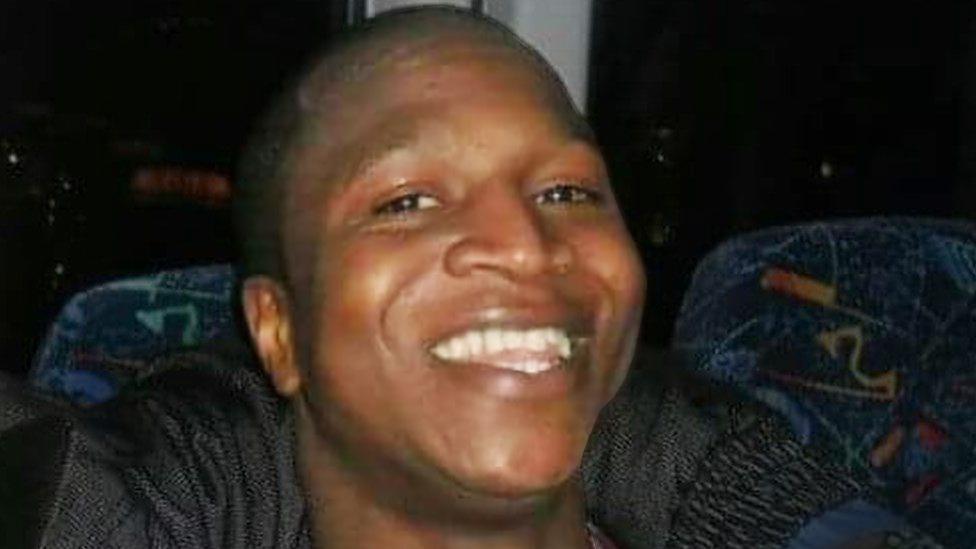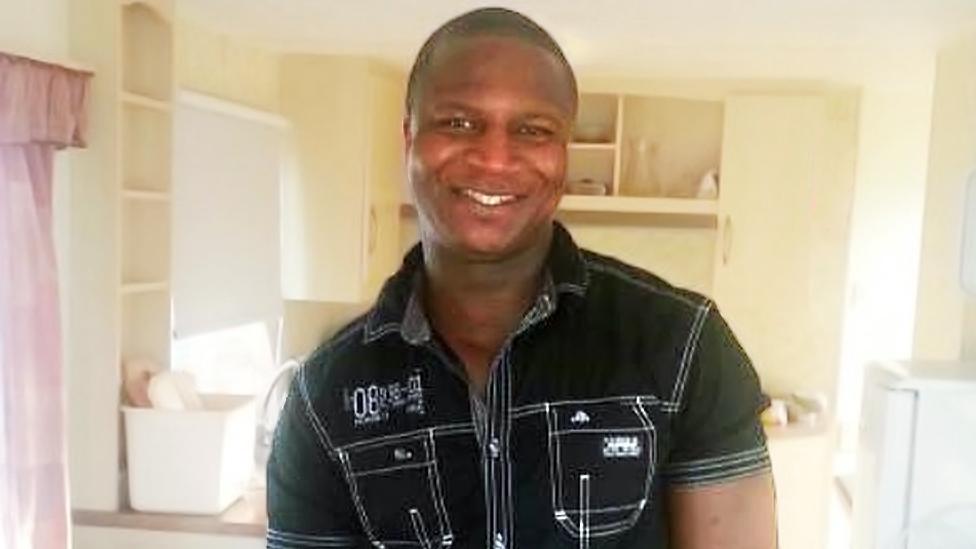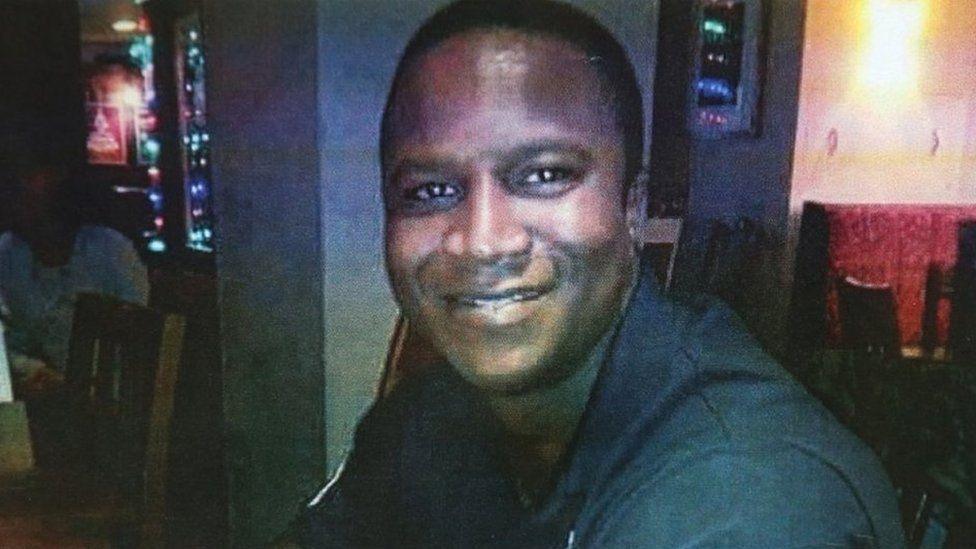Drugs and restraint could have caused Bayoh death - expert tells inquiry
- Published

Sheku Bayoh died after being restrained by officers in Kirkcaldy in May 2015
The Sheku Bayoh inquiry has been told that his death could have been caused by a combination of drugs and being restrained by the police.
The 31-year-old had taken ecstasy and another stimulant drug before a violent confrontation with officers in 2015.
Forensic pathologist Dr Kerryanne Shearer said the drugs might have led to a fatal cardiac arrest.
She also told the inquiry the drugs, restraint or a combination of both could been responsible.
Mr Bayoh died after being restrained by police officers in Kirkcaldy and was found to have suffered 23 separate injuries.
The public inquiry is looking into the circumstances of the father-of-two's death, and whether race was a factor.
Dr Shearer was one of two doctors who carried out the post-mortem on Mr Bayoh and was giving evidence for a second day.
The forensic pathologist told the inquiry she confirmed the cause as a "sudden death in a man intoxicated by MDMA [ecstasy] and alpha-PVP whilst being restrained".

Mr Bayoh was training to be a gas engineer, had a partner, and was father to two boys
Senior counsel to the inquiry, Angela Grahame KC, asked Dr Shearer what role the struggle may have played in the cause of Mr Bayoh's death.
She replied: "During these types of struggles, with how the deceased may have behaved and moved, they would have been using a great degree of muscle strength.
"Whilst doing that at such intensity you can get a breakdown of proteins in the muscle which produces acids and you can get something called an acidosis.
"You get acids circulating in the bloodstream and those acids can cause irritation of the heart and can irritate the conduction system (of the heart) and can lead to cardiac arrhythmias and cardiac arrests.
"I don't see anything at the post-mortem to confirm this but it's taken into consideration with the circumstances described."
She added: "I think the struggle is a major part of it as well.
"It's something that has to be considered as being important in the whole scenario."
In her statement to the inquiry, Dr Shearer wrote it could not be "completely excluded" that restraint had a role to play in Mr Bayoh's death.
'Rare' rib injury
The inquiry also heard how Dr Shearer found Mr Bayoh's first left rib was fractured whilst she was conducting her internal exam.
Dr Shearer said it "could have been sustained" while he was being restrained as it was "very rare" to sustain such an injury while being resuscitated.
A condition called "excited delirium" had been discussed as a possibility throughout the inquiry, but Dr Shearer dismissed this as a significant cause of death because it is a psychiatric condition, rather than one that can be diagnosed through a post-mortem examination.
The inquiry, before Lord Bracadale, continues.
Related topics
- Published2 March 2023

- Published9 May 2023

- Published28 February 2023
